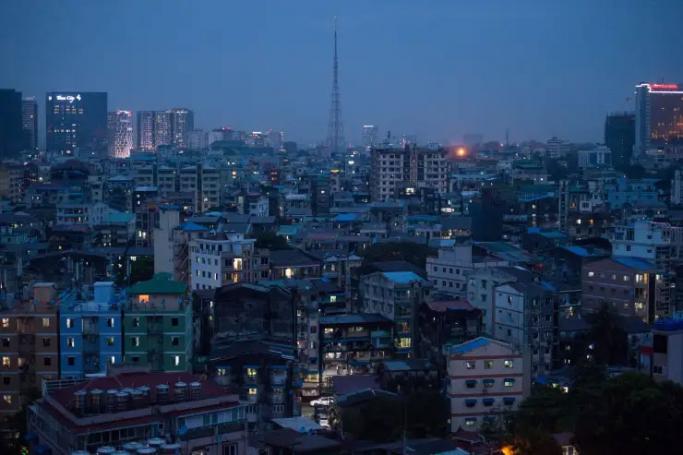The junta has now started strictly enforcing the overnight guest list registration law and using it as a tool to oppress and extort innocent people.
The law, part of the Ward or Village Tract Administration Law, was originally brought in under the previous military rule, repealed by the NLD when it was in power and bought back by the current junta after the February 2021 coup.
The law states that householders must register anyone from outside their township who is staying in their house overnight.
At first, when the law was reintroduced in big cities like Yangon and Mandalay the overnight guest lists were only casually checked.
But recently the law has been much more strictly enforced. Junta officials have been carrying out door-to-door inspections almost every day in some townships.
Unfortunately, it has also become a lot harder to register guests since the coup, because access to ward administration offices, where guests have to be registered, has also become a lot harder, as administrators and other junta staff are scared for their lives because guerrilla groups have already killed many ward administrators for collaborating with the junta.
The administration offices are only letting in one person at a time, which is causing a lot of delays and waiting. Once people get to see someone in the office registering guests is not easy and requires a lot of documentation.
The names, photos and documentation of the hosts and everyone living in the house and the names, photos and documentation of all the guests have to be submitted in the registration process. Some ward administrators are also charging 20,000 kyats to register guests.
A resident of Mingala Taungnyunt Township in Yangon City said: "Our ward administrator is different to others. He is extorting money from civilians. Overnight guests can only be registered with a full-length photo of all [host] family members.
"He threatened not to register guests and also asked for 20,000 kyats to register them. It was the same for my neighbours who live next door. I have never heard of people being charged for overnight guest registration. 20,000 kyats is also a lot nowadays when people are struggling. It is a struggle for manual labourers to earn 20,000 kyats in a day."
According to Yangon residents, Soldiers in full military uniforms have been blocking off roads and flooding areas with soldiers and police to check overnight guests. They go from house-to-house looking for unregistered guests and if they find any, they make the unregistered guests, hosts and anyone else in the house kneel in the road before they arrest them. They are then taken to away in police vans unless they can successfully bribe the soldiers.
Soldiers suddenly raided apartments looking for unregistered guests on 6th Street, near 50 feet Hledan Market, in Yangon City's Kamayut Township on 5 July and arrested three people, according to local news service Kamayut Information.
Between 13 June and 18 June junta soldiers used the excuse of checking overnight guest registrations to search for people participating in Yangon strikes and arrested nearly 50 youths according to a member of the of the General Strike Committee.
Recently, according to SHAN News, there has also been an increase in checks on guest registrations. Soldiers have mainly targeted tenants and have been interrogating suspects illegally without the relevant ward administrators being present. interrogated Soldiers also seemed to be using guest registration inspections as a way of searching for wanted people and have checked houses for unregistered guests whilst carrying photos of people they are looking for.
Since the coup it has become harder to travel in Shan State and elsewhere as the number of checks on people from other townships are increasing every day. In urban areas interrogations of civilians have also greatly increased and soldiers are taking more bribes.












